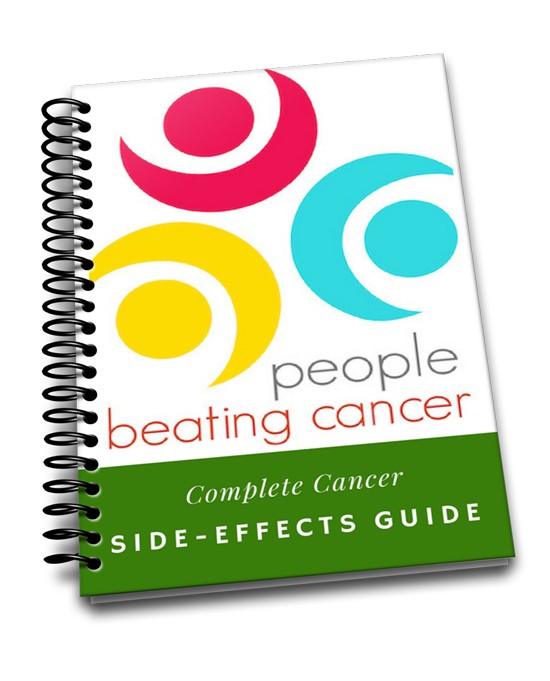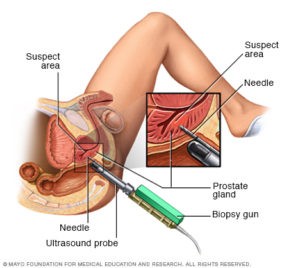
Diagnosed with Cancer? Your two greatest challenges are understanding cancer and understanding possible side effects from chemo and radiation. Knowledge is Power!
Learn about conventional, complementary, and integrative therapies.
Dealing with treatment side effects? Learn about evidence-based therapies to alleviate your symptoms.
Click the orange button to the right to learn more.
- You are here:
- Home »
- Blog »
- side effects ID and prevention »
- Testosterone Benefits Prostatectomy
Testosterone Benefits Prostatectomy

“…a study showing that testosterone replacement therapy (TRT) significantly improved outcomes for some men who underwent robot-assisted radical prostatectomy (RARP)”
The study linked below gives new meaning to the old adage “use it or lose it.” According to the study, testosterone may help men who have recently undergone surgery to remove the prostate (prostatectomy). To put it another way, testosterone replacement therapy (TRT), for some men, can help you use it reducing your risk of losing it.
According to the study, for those men who are hypogonadal, testosterone replacement therapy (TRT) can help recovery from radical prostatectomy- TRT promoted muscle mass, increases libido and sexual performance and reduced the risk of biochemical recurrence.
The challenge facing men who have a radical prostatectomy is the risk of two life altering adverse events. According to the AUA, though most men suffer some urinary incontinence post-prostatetomy, only 13-17% are incontinent 12 months after the procedure.
As for impostence, research indicates that as many as 85% of men suffer some form of erectile dysfunction post-prostetectomy. While many therapies can improve this statistic, it’s safe to say that TRT may be able to further improve this adverse event.
To Learn More About Prostatectomy- click now
Have you been diagnosed with prostate cancer? What is your PSA, Gleason score? Scroll down the page, poast a question or comment and I will reply to you ASAP.
Thank you,
David Emerson
- Cancer Survivor
- Cancer Coach
- Director PeopleBeatingCancer
Recommended Reading:
- Androgen Deprivation Therapy Slows Prostate Cancer but Causes Heart Disease
- The Better Prostate Cancer Diet- Mediterranean or Flexitarian?
- Got Androgen Deprivation Therapy? (ADT)-Get Nutritional Supplementation-
Overturning Dogma — Using Testosterone in Prostate Cancer
“Conventional wisdom got a swift kick in the pants from a study showing that testosterone replacement therapy (TRT) significantly improved outcomes for some men who underwent robot-assisted radical prostatectomy (RARP)…
The finding comes from a study in 824 patients who underwent RARP for the primary treatment of prostate cancer. A subset of patients (n = 152, 18%) who had low preoperative levels of free testosterone were given TRT for postoperative recovery of sexual function.
As a surprise to the researchers, the results showed that this group of patients had significantly fewer biochemical recurrences within a year of surgery. Moreover, TRT use was associated with longer time to recurrence and delayed disease progression compared with standard management,..
The findings are in direct contradiction to a dogma, dating to the 1940s, that states, “Thou shalt not give testosterone to men with prostate cancer.”
The concern has been that testosterone will accelerate the growth of prostate cancer cells, and indeed, usual treatment aims to lower testosterone levels with “chemical castration” using androgen deprivation therapy…
“Obviously, selection of the right patients is vital, but if confirmed, this may have immediate benefits on quality of life,” Montorsi told Medscape Medical News. “The possibility of reducing mortality would be an unexpected bonus.”
“We (doctors) saw this really clear situation where, as the testosterone levels continued to drop, the grade — grade group in particular — started to go up, so the lower your testosterone, the more aggressive your cancer was,” he said…
Fears that giving testosterone to men with prostate cancer is like pouring gasoline on a raging fire date back to the work of Charles B. Huggins, MD, a pioneer of hormonal therapy for prostate cancer and co-winner of the 1941 Nobel Prize for physiology or medicine.
However, in recent years, Ahlering and his team, as well as other investigators, have found evidence to suggest that for some men, especially those who are hypogonadal at the time of surgery and who have low-risk disease, TRT may be both safe and beneficial, because it promotes muscle mass, improves lipid profiles, and increases libido and sexual performance.
The UC Irvine investigators followed 824 patients who underwent RARP as primary treatment of prostate cancer. For all patients, preoperative testosterone and sex hormone binding globulin levels were determined; free testosterone levels were calculated in a prospective fashion.
For nearly one fifth of these men (n = 152,18%), preoperative levels of free testosterone were low. These patients were placed on TRT to improve postoperative recovery of sexual function. Patients remained on TRT throughout follow-up or until the time of biochemical recurrence…
After a median follow-up of 3.1 years, TRT was associated with a 53% relative reduction in risk for biochemical recurrence, which Ahlering acknowledged was “a big surprise.”
In addition, in a secondary analysis of time to biochemical recurrence, TRT prolonged the time to recurrence by a median of 1.5 years…
In a multivariate analysis that controlled for pathologic grade, stage, preoperative prostate-specific antigen (PSA) level, and free testosterone level, the investigators found that TRT was an independent predictor of reduced risk for biochemical recurrence…
“We also observed that patients with hypogonadal status have worse cancer prognosis because they have high-grade cancers, and also prospectively we showed that patients who have worse prognosis have more biochemical recurrence…”


